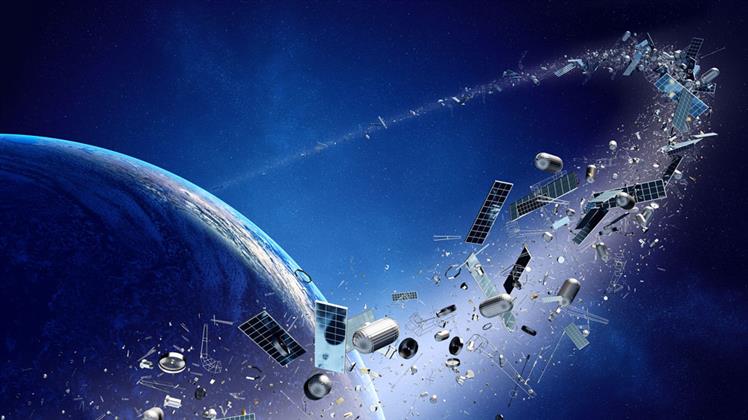The number of satellites in orbit is expected to surge from 9,000 today to over 60,000 by 2030, with estimates suggesting there are already over 100 trillion untracked pieces of old satellites circling the planet, according to researchers from the University of Plymouth, Arribada Initiative, the ZSL (Zoological Society of London), and Spaceport Cornwall in the United Kingdom, and the University of Texas at Austin, California Institute of Technology, and NASA Jet Propulsion Laboratory.
While such technology is used to provide a huge range of social and environmental benefits, there are fears the predicted growth of the industry could make large parts of Earth’s orbit unusable.
Writing in the journal Science, an international collaboration of experts in fields including satellite technology and ocean plastic pollution say this demonstrates the urgent need for global consensus on how best to govern Earth’s orbit.
Any agreement, they add, should include measures to implement producer and user responsibility for satellites and debris, from the time they launch onwards.
Commercial costs should also be considered when looking at ways to incentivize accountability.
Such considerations are consistent with current proposals to address ocean plastic pollution as countries begin negotiations for the Global Plastics Treaty.
In the week that nearly 200 countries agreed to a treaty to protect the High Seas after a 20-year process, the experts believe society needs to take the lessons learned from one part of our planet to another.
Dr. Imogen Napper, Research Fellow at the University of Plymouth, led the newly-published study with funding from the National Geographical Society. She said: “The issue of plastic pollution, and many of the other challenges facing our ocean, is now attracting global attention. However, there has been limited collaborative action and implementation has been slow.
Now we are in a similar situation with the accumulation of space debris.
“Taking into consideration what we have learnt from the high seas, we can avoid making the same mistakes and work collectively to prevent a tragedy of the commons in space. Without a global agreement we could find ourselves on a similar path”, Napper sentenced.
pll/lam/lpn










